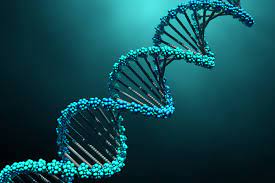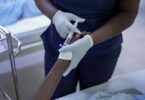F.P. Report
PESHAWAR: Gene therapy has transformed the lives of people with a genetic disorder that causes painful and unpredictable swelling attacks.
Angiodema, thought to affect 50,000 people worldwide, can be seriously debilitating, affect airways, and occasionally prove fatal.
Patients treated with a single dose of gene therapy Crispr-Cas9 showed little sign of further symptoms.
The therapy also has big potential as a treatment for other genetic conditions.
“It looks as if the single-dose treatment will provide a permanent cure for my hereditary angioedema patients’ very disabling symptoms,” principal investigator Dr Hilary Longhurst, from the University of Auckland said.
Angiodema causes swelling in the soft tissues and can affect many parts of the body.
Cleveland Firman, from Suffolk, who received the treatment in the UK said: “The randomness, unpredictability and potential severity of the attacks has made trying to live my life almost impossible. I spent my life constantly wondering if my next attack would be severe.
“The swellings are painful and disfiguring. I was embarrassed to go out in case of an attack. I’ve been hospitalised with swellings on my neck and throat that have affected my ability to breathe.
“Since the treatment, I’ve not had a single attack. I’ve had a radical improvement in my physical and mental wellbeing.
“I am very positive about the future. I am now volunteering where I can meet like-minded people. The freedom has opened up my world and improved my self-confidence.”
Crispr-Cas9 is a DNA cutting and pasting system that scientists have borrowed from nature. Bacteria use it to protect themselves against foreign DNA from viruses. Scientists have been using it in the lab to target and cut out faulty DNA in human cells that cause illnesses.
However, the edits are not always perfect and the cuts can end up in the wrong place.
In the trial, published in the New England Journal of Medicine, angiodema symptoms were reduced by 95% among a small group of patients from the UK, New Zealand, and the Netherlands given a single infusion – targeted at cells in the liver – to reduce the KLKB1 gene’s ability to produce plasma prekallikrein.
Just one of the patients continued to show symptoms, which were only minor.
Dr Padmalal Gurugama, who led the UK branch of the research, at Cambridge University Hospital, said the therapy could significantly improve lives.
“Hereditary angioedema can cause patients severe swellings and intense pain, which can be life-threatening as well as restricting normal activities, such as going to work or school,” he said.
“Because it is often misdiagnosed, many patients undergo unnecessary treatments and invasive procedures.
“This is not the only condition in which Crispr-based gene editing is being tried.
“There are a lot of clinical trials targeting various other conditions that are producing similar results.”
The patients will be followed up for 15 years – to monitor the treatment’s long-term safety and efficacy.







